Popular games for franchise Bemani
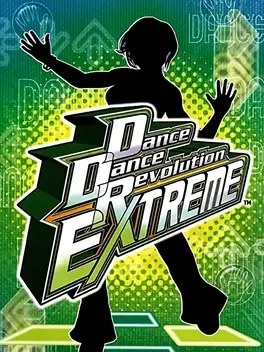
Dance Dance Revolution Extreme is a music video game by Konami and is the eighth release in the main Dance Dance Revolution (DDR) series. It was released on December 25, 2002 for Japanese arcades, on October 9, 2003 for the Japanese PlayStation 2, and on September 21, 2004 for the North American PlayStation 2. This game is the ninth release in North America, but despite having the same name as its Japanese counterpart, its gameplay and soundtrack is significantly different[1] and won the Video Music Awards in 2005 on MTV for Best Video Game Soundtrack. While the PlayStation 2 version came out in North America, the arcade version was exclusive to Japan. Despite this, the arcade version was exported to many arcades in the USA (most of them being bootlegged). Dance Dance Revolution Extreme was the last game in the DDR arcade franchise for four years until Dance Dance Revolution SuperNova in 2006. The arcade release of the game contains one of the largest soundtracks of any DDR game, featuring 240 songs, as well as music from other Bemani music titles. Konami issued an in-game thank you to the fans of Dance Dance Revolution and announced a rejuvenation of the entire series, but did not go into details. Konami's announcement led people to believe that DDR Extreme might be the final DDR release or that the series might be on hiatus or rebooted in the same manner as Beatmania and Beatmania IIDX.
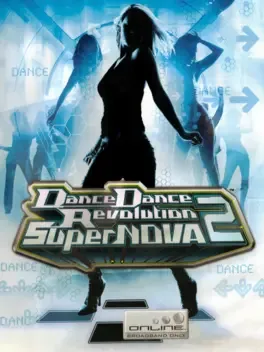
The hottest revolution and bestselling video game in the music game category explodes onto the dance floor with Dance Dance Revolution SuperNOVA2, the follow-up to 2006's biggest and best DDR game to date! Dance Dance Revolution SuperNOVA2 will deliver a dance party extravaganza with its fun interactive gameplay, incredible song selection and innovative new game modes.
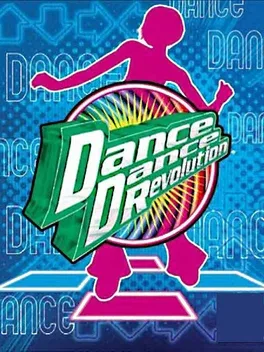
Dance Dance Revolution (ダンスダンスレボリューション Dansu Dansu Reboryūshon?), abbreviated DDR and also known as Dancing Stage in earlier games in Europe and Australasia, and some other games in Japan, is a music video game series produced by Konami. Introduced in Japan in 1998 as part of the Bemani series, and released in North America and Europe in 1999, Dance Dance Revolution is the pioneering series of the rhythm and dance genre in video games. Players stand on a "dance platform" or stage and hit colored arrows laid out in a cross with their feet to musical and visual cues. Players are judged by how well they time their dance to the patterns presented to them and are allowed to choose more music to play to if they receive a passing score. Dance Dance Revolution has been given much critical acclaim for its originality and stamina in the video game market. There have been dozens of arcade-based releases across several countries and hundreds of home video game console releases, promoting a music library of original songs produced by Konami's in-house artists and an eclectic set of licensed music from many different genres. The DDR series has inspired similar games such as Pump It Up by Andamiro and In the Groove by Roxor
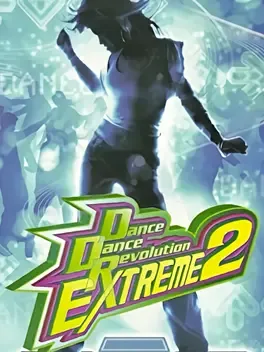
In addition to including features from the previous game, PS2 gamers will now have the opportunity to participate in exciting head-to-head DDR online competitions for the first time ever. The 100 top scorers will be recognized through an interactive ranking system, letting novice players test their dancing mettle against top-notch DDR experts. Players can also go online to access new challenge missions which will be refreshed periodically, allowing players a way to continually expand the DDR gaming experience. Whether players are looking to dance to the hottest tracks in town, choreograph, edit and create their own dance steps, or use the 'Work Out' mode to burn off excess pounds, DDR Extreme 2 will offer players of all ages an interactive and fun way to get up and groove. The game's support for the EyeToy Camera continues to add depth and dimension to the gameplay. While using the camera, players can access fast-paced mini games and use both their hands and feet while dancing and watching themselves on TV. Keeping players on the dance mat is more than 100 minutes of energetic dance music, including exclusively-licensed dance hits as well as smash-hit songs, such as "Genie In A Bottle" and "Oops!...I Did It Again." Also adding to the impressive line-up of songs is new music by the famous video game musician Yuzo Koshiro, whose credits include composing music for hit games such as Streets of Rage series, Revenge of Shinobi and Shenmue.
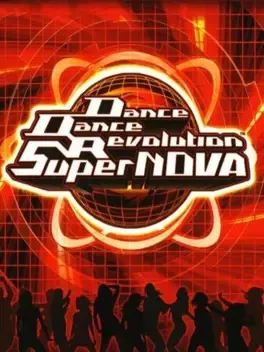
The hottest revolution and bestselling video game in the music game category returns to its arcade roots with Dance Dance Revolution Supernova, the first arcade version to be released in North America in 6 years. Dance Dance Revolution Supernova uses a completely new hardware engine and is the largest game in the series. Players will have access to over 300 songs from different musical genres and 2000+ dance step patterns. Dance Dance Revolution Supernova is a brand new evolution in the DDR series and expands on every aspect of what made the original series innovative, fun and addictive.
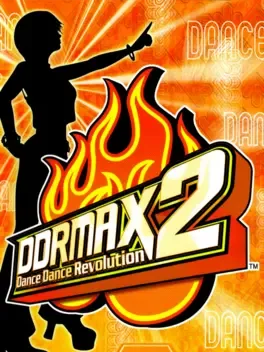
The dance floor kicks into overdrive with DDRMAX2 Dance Dance Revolution. It is the latest installment of the highly anticipated DDR series and takes the revolution to the masses! Players can customize their own dance steps and workout in an innovative Exercise Mode. DDR is packed with a smash-hit lineup of all-new exclusive songs, licensed music and dance hits. There are cool contemporary game modes and brand new graphical interfaces featuring music videos that will keep everybody movin' and groovin' to the pulsating beats. DDR Max 2 also includes links to previous games for special features.
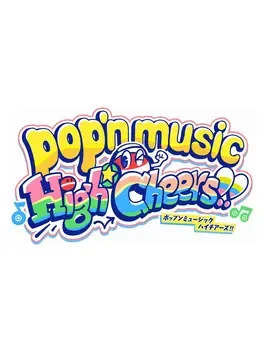
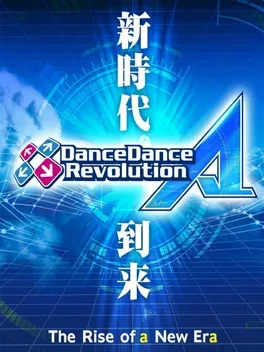
Dance Dance Revolution A (pronounced Ace) is a music video game, the 15th installment of the Dance Dance Revolution series, and the sequel to the 2014 release of Dance Dance Revolution. It was released on March 30, 2016 in Japan and Asia as a dedicated cabinet and as an upgrade kit, with Japan receiving a localized build, while the Korean release was delayed to the next week. This game was also released in North America later in 2016, in the form of new cabinets with e-Amusement connectivity, while Europe received new offline cabinets on December 15, 2017. It is the first international arcade release of Dance Dance Revolution since Dance Dance Revolution X2.

The 5th release in the beatmania IIDX series. Marks the first of many appearances from Namco mainstays sampling masters.
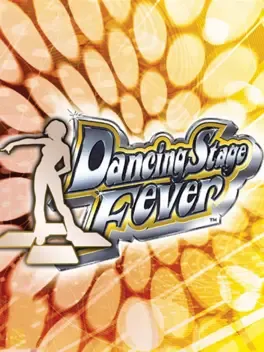
Dancing Stage Fever is the second European DDR game to be released for the PlayStation 2, although a port for PlayStation was also released. The PS2 edition uses a recolored DDRMAX2 engine with an aqua blue background complemented with star motifs instead of black and gray, while the PS edition uses a recolored DDR 4thMix engine. Also, the PS edition omits freeze arrows and full motion videos. The PlayStation 2 edition has 29 songs: 8 licenses, 16 Konami originals (of which 14 are also on Dancing Stage SuperNova for arcades) and 5 Bemani crossovers (of which 4 are also on Dancing Stage SuperNova for arcades). The PlayStation edition only features 15 of these songs: 5 licenses, 8 Konami originals and 2 Bemani crossovers. All licensed songs, with one exception, are exclusive to Fever. Both Fever releases include "All That She Wants", "Cool for Cats", "One Step Beyond" and "Virtuality" (by VBirds). On the PlayStation 2, these songs feature their music video, except for "Cool for Cats". The "Virtuality" music video notably shows the VBirds members dancing on flying dance pads to the rhythm of the arrows shown on screen.[3] The PlayStation 2 version also exclusively features "Come On Eileen", "Teenage Kicks" (with its music video) and "The Boys Are Back in Town". "Wannabe" was once exclusive to both Fever releases, but it was later included on Dance Dance Revolution Party Collection.
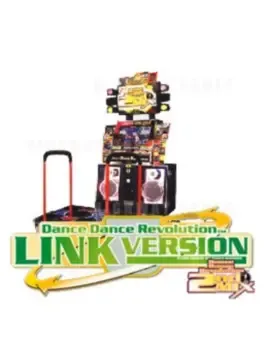
Dance Dance Revolution 2ndMix, sometimes abbreviated as 2ndMix, is the second game in the Dance Dance Revolution series of music video games. It was released as an arcade game by Konami in Japan on January 29, 1999. It has a total of 32 songs: ten from the original Dance Dance Revolution arcade game and 26 all-new songs. An updated version, Dance Dance Revolution 2ndMix Link Version, was released to Japanese arcades on April 28, 1999. This version came with a PlayStation memory card reader, installed in the middle of the arcade cabinet. It supports cards that have Link Data from the home version of Dance Dance Revolution, allowing each player to save high scores and play custom step edits. 2ndMix Link Version adds five new songs to the game, two from the home version and three new licenses, for a total of 37 songs. Future Dance Dance Revolution releases in Japan, up to and including Dance Dance Revolution Extreme, integrated Link Data functionality in-game. However, these required different home games to produce different Link Data formats: 3rdMix, 4thMix, 4thMix Plus, 5thMix and New Version.
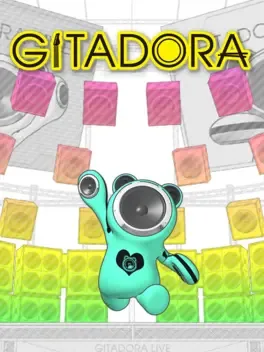
It is a rhythm game where the player uses a controller to simulate the playing of an electric guitar or drum set. The game consists of music predominantly from the rock music, rock and roll and J-pop genres.
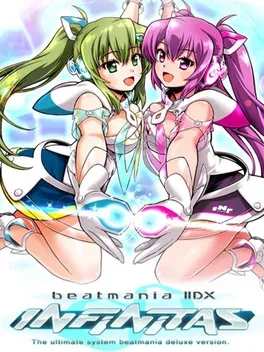
The cloud-based home release of the arcade series beatmania IIDX, released as part of Konami's Konaste line. The 2015 client was succeeded by the 2020 relaunch of Infinitas, and support ended shortly after.
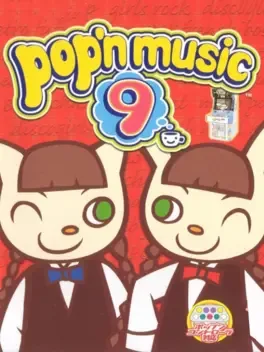
The 9th game in the Pop'n Music franchise.
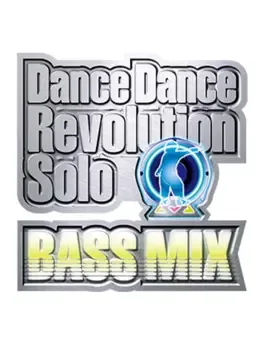
Dance Dance Revolution Solo Bass Mix is the first special one-player version of the Dance Dance Revolution series of music video games. It was released as an arcade game by Konami on August 19, 1999. Although only officially released in Japan, units exist worldwide. DDR Solo Bass Mix features 16 songs, all of which are new to Dance Dance Revolution. Most of the music comes from the Dancemania BASS albums,hence the name "Solo Bass Mix". A Solo Bass Mix machine can be upgraded to DDR Solo 2000. This is the first game that features a live-action intro.
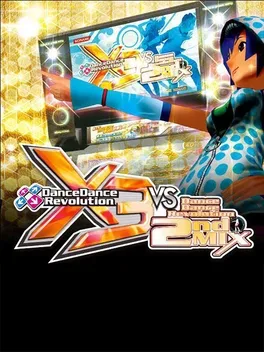
Dance Dance Revolution X3 is a music video game, and a part of the Dance Dance Revolution series. The arcade version of DDR X3 was revealed by Konami on June 2, 2011. The sequel to Dance Dance Revolution X2, X3 began public beta testing on June 8, 2011. Promotional information for the game revealed the full name for the game, called Dance Dance Revolution X3 VS 2ndMix due to the new "2ndMix" mode in the game. It was released in Japan on November 16, 2011 for dedicated cabinets and November 30, 2011 for upgrade kits, and December 16, 2011 in Asia.
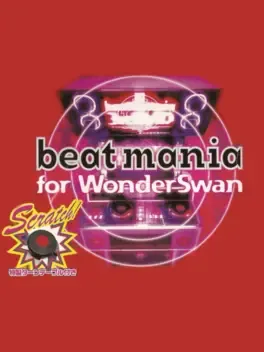
A portable version of Konami's Beatmania series. The game features falling blocks that you must hit in time with the beat when they reach the judgement line. The game is played with the Wonderswan held vertically. A scratch attachment is included that you mount on the console to be able to trigger the scratch button more easily. Unlike the Game Boy versions of Beatmania, beatmania for WonderSwan features the original versions of the songs, instead of 8-bit renditions. The game is played in rounds, with each round giving you a selection of songs, as you clear the round a new selection with harder songs is made available. There are 11 songs included in the game.
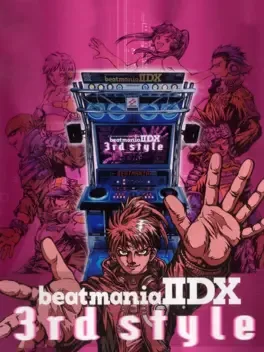
The 3rd title in the beatmania IIDX series. Features the first of several Dance Express High Speed licenses.
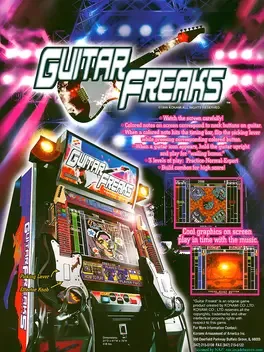
GuitarFreaks is a music video game series produced by Konami. It is a rhythm game where the player uses a controller to simulate the playing of an electric guitar. The game consists of music predominantly from the rock music, rock and roll and J-pop genres. It is considered one of the most influential video games of all time, for having laid the foundations for popular guitar-based rhythm games, such as the Guitar Hero series. Working Designs attempted to bring Guitar Freaks PlayStation 2 games in the U.S., but patent problems with the guitar controller prevented the project from moving forward. The game is now in its nineteenth version, GuitarFreaks V8, which was released in March 28, 2011. It was speculated to be the final release of GuitarFreaks V. A spin-off series, GuitarFreaks XG was released in Japanese arcades on March 10, 2010,[4] which added two more buttons to the fret bar. A sequel, GuitarFreaks XG2, was released on March 9, 2011. Another sequel, GuitarFreaks XG3, was released on Feb. 23, 2012.
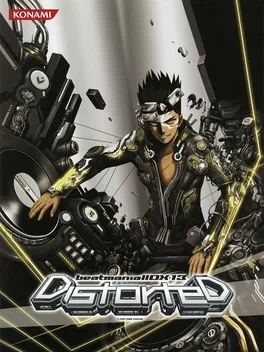
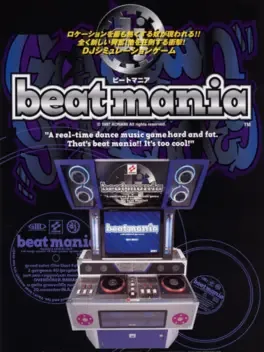
Beatmania is a rhythm game developed by Konami. It is the first game in the BEMANI series ( which it was named after: BEatMANIa ). It is one of the few music games developed by the internal studio GMD (Game Music Division). Beatmania is played with a controller with one turn table and 5 keys, three white and two black. On the screen you will see bars moving from the top to bottom in columns representing each of the keys and the turntable. When the bars reach the judgement line it is time to scratch. The game contain 7 songs, which is the lowest number ever in the BEMANI franchise.
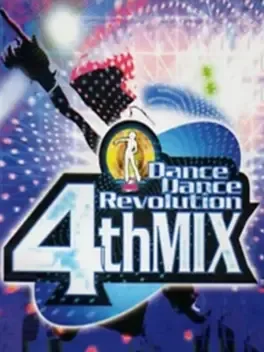
Dance Dance Revolution 4thMix, or 4thMix, is the 4th game in the main Dance Dance Revolution series of music video games. It was released as an arcade game by Konami on August 24, 2000. Although only officially released in Japan, units exist worldwide. 4thMix features 136 songs, 49 of which are new to this mix. Twelve of the songs are initially hidden and must be unlocked by the arcade operator. 12 songs are unlockable in 4th Mix Plus, giving them 150 songs in total. In DDR 4th Mix, new songs that first appears in DDR 3rd Mix Plus, DDR 3rd Mix Korea and DDR Solo appears in this mix. The home version of 4thMix was released in Japan on March 15, 2001, for the Sony PlayStation console. It contains 55 songs, including 3 from Dance Dance Revolution 3rdMix (which were not present in the home version of that version) and six hidden songs: one from 4thMix Plus and one as preview songs for the next arcade version, Dance Dance Revolution 5thMix. The game also features the 6-panel mode, branded as Solo Mode.
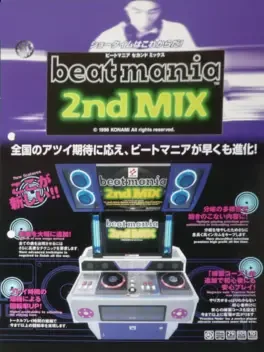
Beatmania 2ndMIX is a rhythm game developed by Konami. It is the second game in the beatmania series and is part of the BEMANI franchise ( which it was named after: BEatMANIa ). The game is played with a controller with one turn table and 5 keys, three white and two black. On the screen you will see bars moving from the top to bottom in columns representing each of the keys and the turntable. When the bars reach the judgement line it is time to scratch. Beatmania 2ndMix is the first time the hidden modifier was included, which hides notes halfway down the screen. The Difficulty levels have been reworked to a scale between 1 and 6. All songs from the first game moves on, combined with some remixes and 13 totally new songs for a total of 25 tracks to play.
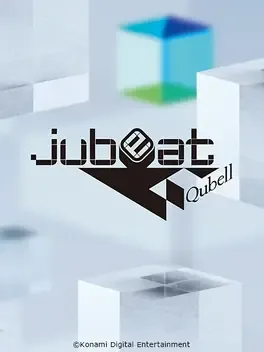
The 11th game (7th if you don't count jubeat ripples APPEND, jubeat knit APPEND, jubeat copious APPEND, and jubeat saucer fulfill) in KONAMI's 16 panel rhythm game series, jubeat.